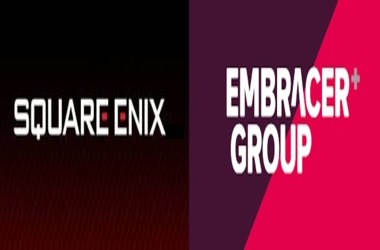
These cherished properties have, understandably, been abused and mishandled by Square Enix during the last ten years. Obviously, this revelation has upset gamers. Notably, Embracer Group’s official press release is not anything better. It reads:
“The purchase delivers a promising stream of new episodes from renowned brands and fresh IPs, besides a novel Tomb Raider title. Embracer’s goal is to create a leading independent worldwide gaming and entertainment platform, and this purchase helps achieve that goal. Among Embracer’s favorite things about these studios is their impressive collection of exclusive IP, which includes well-known worldwide brands like Tomb Raider and Deus Ex, and also evidence of their potential to develop AAA titles that have enormous and loyal followings. In order to increase the studios’ economic potential, it seems sensible to allow them to expand naturally.”
A minimum of two series seem to be in the works for new titles, even though nothing is certain just yet. When discussing items that have yet to be completed, these buys fall under that category. Accord to acquire would ultimately pave way for The Embracer Group to own these facilities for less than $300 million this year.
Why what is the reason behind selling? Regardless of the warm response received, good reviews were gained and well-thought about games developed by Crystal Dynamics (Rise of the Tomb Raider, Marvel’s Avengers), Eidos Montreal (Marvel’s Guardians of the Galaxy, Shadow of the Tomb Raider), and Square Enix Montreal (Hitman Go, Deus Ex Go, Lara Croft Go), Square Enix did not have any liking towards these IPs. Square Enix regarded the commercial outcome of these titles to be below forecasts. From gamers’ point of view, the development is positive as it would pave way for the next versions of Tomb Raider, Deus Ex, Thief and Legacy of Kain games. As The Embracer Group has taken charge, there’s a higher chance of seeing a lot more of these kinds of games in the years ahead.
Square Enix’s President Yosuke Matsuda is eager to join the Metaverse and NFT juggernaut, hence they’re offering. He said in January that Square Enix will be studying the Metaverse and Blockchain technologies. The Metaverse and Blockchain bouquet did not go well with fans, but Matsuda laid further emphasis on it earlier this month.
With regard to queries about the takeover, Square Enix stated:
“As a result of the deal, the enterprise will be better positioned to respond to the current shifts in the international business climate and boost its overall worth by expediting the development of its primary digital content operations. By pushing ahead with initiatives in blockchain, AI, and the cloud, the Transaction also makes it possible to establish new enterprises.”
As a result, they’re offering high-quality video games that have got good response and wide acclamation for re-investment in Blockchain, AI, and the Cloud investments.
But Square Enix wants to ensure their fan base in a certain way, so they’ve said they’ll keep releasing classics such as Life is Strange and Outriders. Even though Square Enix’s surge of interest in Metaverses and Blockchain Technology is probably to taint the business’s conventional IPs such as Square Enix and Dragon Quest, it doesn’t appear that the firm is surrendering on its conventional IPs.
We don’t understand yet if that might go in the manner Square Enix wants it to. Many Blockchain-based game examples, however, have proven that NFT Games are pyramid scams that primarily enrich those at the peak while capitalizing on newcomers and the unwary.
The future Final Fantasy title or spin-off may use metaverse or blockchain technology, even though the firm is currently actively producing titles such as FFXVI and FFXIV right now. In the example of Chocobo GP, we’ve witnessed how keen Square Enix is to trash its games in order to make money. With the addition of the blockchain, we expect to see even more of this kind of behavior.